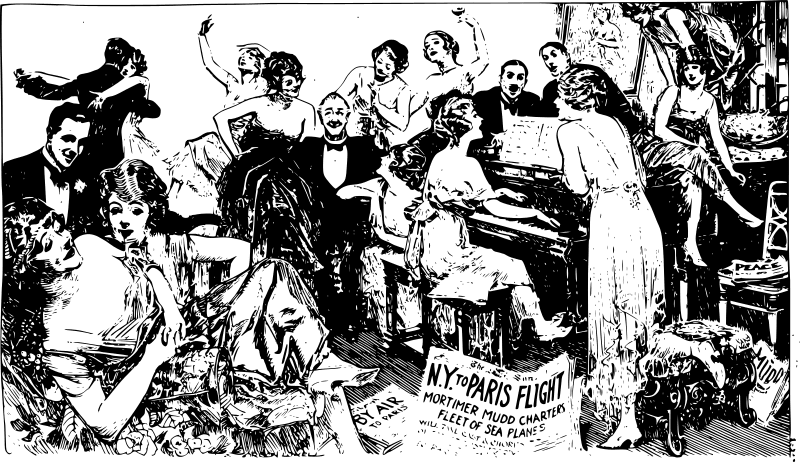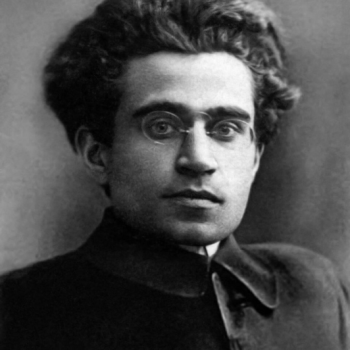There are various kinds of conservatives: Burkean conservatives concerned with preserving communities and traditions. Free-market conservatives committed to economic growth. Neo-conservatives who believe American values should be spread abroad, by force if necessary. Libertarian conservatives prioritize personal liberty and small government. Common-good conservatives champion the working class and are willing to use the government to direct the economy for the good of all. Social conservatives are pro-life and support traditional morality.
Now we are hearing about another kind of conservatives, variously known as barstool conservatives, libertine conservatives, porn conservatives, or “sex, drink, and rock ‘n’ roll” conservatives.
Here is how one of their number, Brandi Love, describes them:
I am both a conservative and a Christian. I am not, however, a zealot. I have travelled all over the United States meeting fans for more than 15 years. There are millions. My fan base is now, and has always been, what I like to refer to as Sex, Drink, and Rock ‘n Roll conservatives.
My members are a direct reflection of me: Constitutional, red state, Second Amendment-supporting pro-lifers who support our troops and our rights to free speech. We love God and our flag but generally dislike organized religion. We like to hang out on the deck drinking a beer, talking sports, listening to country, rock, and rap while using colorful words to describe Nancy Pelosi, Chuck Schumer, and Anthony Fauci.
Brandi Love is a porn star.
She was in the news recently because she was going to attend a conference of Turning Point USA, an organization for young conservatives, some of whom are minors. But when the organization learned of her profession, her ticket was revoked. Whereupon the adult film star claimed that she was “cancelled,” just like the liberals do, and her free speech was infringed.
What is significant is that many prominent conservatives came to her defense. And it turns out, there are a lot of grass roots conservatives who are on her side.
Matthew Walther sees in them a new kind of social conservative, arguing that they played a big part in Donald Trump’s success. Indeed, Donald Trump–the gambling magnate with his womanizing, including consorting with porn stars–not only appeals to but exemplifies this mindset:
What Trump recognized was that there are millions of Americans who do not oppose or even care about abortion or same-sex marriage, much less stem-cell research or any of the other causes that had animated traditional social conservatives. Instead he correctly intuited that the new culture war would be fought over very different (and more nebulous) issues: vague concerns about political correctness and “SJWs,” opposition to the popularization of so-called critical race theory, sentimentality about the American flag and the military, the rights of male undergraduates to engage in fornication while intoxicated without fear of the Title IX mafia. Whatever their opinions might have been 20 years ago, in 2021 these are people who, with varying degrees of enthusiasm, accept pornography, homosexuality, drug use, legalized gambling, and whatever GamerGate was about. On economic questions their views are a curious and at times incoherent mixture of standard libertarian talking points and pseudo-populism, embracing lower taxes on the one hand and stimulus checks and stricter regulation of social media platforms on the other.
Walther calls these folks “Barstool conservatives,” not because they frequent bars, though they do, but because they are the audience of Dave Portnoy’s liberal-bashing sports site Barstool. Comments Walther, “as Portnoy emerged as one of America’s most visible critics of the lockdown policies instituted by virtually every state governor, it became clear to me that more so than anyone else he embodied the world view of millions of Americans, who share his disdain for the language of liberal improvement, the hectoring, schoolmarmish attitude of Democratic politicians and their allies in the media, and, above all, the elevation of risk-aversion to the level of a first-order principle by our professional classes”.
Nate Hochman, writing in the American Mind, has fired back with a post entitled No, Porn Stars Are Not Conservative. He makes the case that conservatism has to be about conserving a moral social order. He blames the libertarian strain of conservatism. He writes, “An insidious libertarianism has captured the language and worldview of the modern right. The inability to distinguish between liberty and license is endemic to today’s conservative mainstream.”
Responding to that, Bonnie Kristian–a libertarian who is also a Christian–writes that The right’s new libertinism isn’t libertarian. Libertarians are concerned about small government and free markets, something that these “libertine” conservatives care little about. (Never mind that when the Turning Point USA organization banned Brandi Love, libertarians tweeted that they would be welcome at their events.) Meanwhile, Sen. Rand Paul (R-Ky), who is both a libertarian and a social conservative, explained that a concern for personal liberty necessarily entails support for strong families, arguing that Libertarian is not Libertine.
So what is your take on all of this? Virtually all of these brands of “conservatives” do hold to certain beliefs in common. They are all pro-life, patriotic, support the Constitution, believe in the Second Amendment, oppose the politically ethos, and are against coercive liberalism.
That’s not nothing. Surely all of these kinds of conservatives, including the porn-loving kind, would vote on a common candidate. Isn’t that kind of political alliance–despite religious and moral differences–necessary in democratic politics?
Then again, though we might be political allies, that doesn’t mean that the differences between these kinds of conservatives are not of monumental importance. We certainly don’t have to invite each other to each other’s conferences.
This controversy is also a reminder that Christians involved in politics–even conservative politics–are not necessarily going to find a predominance of kindred spirits. Christians should work for their issues–fighting abortion, promoting families, opposing moral decadence, protecting religious liberty, etc.–and this may involve working with various co-belligerents, some of whom they will oppose on other issues and some of whom might not even be conservatives.
Illustration: “Wild Party” (1920s) via Open Clipart, Public Domain
















